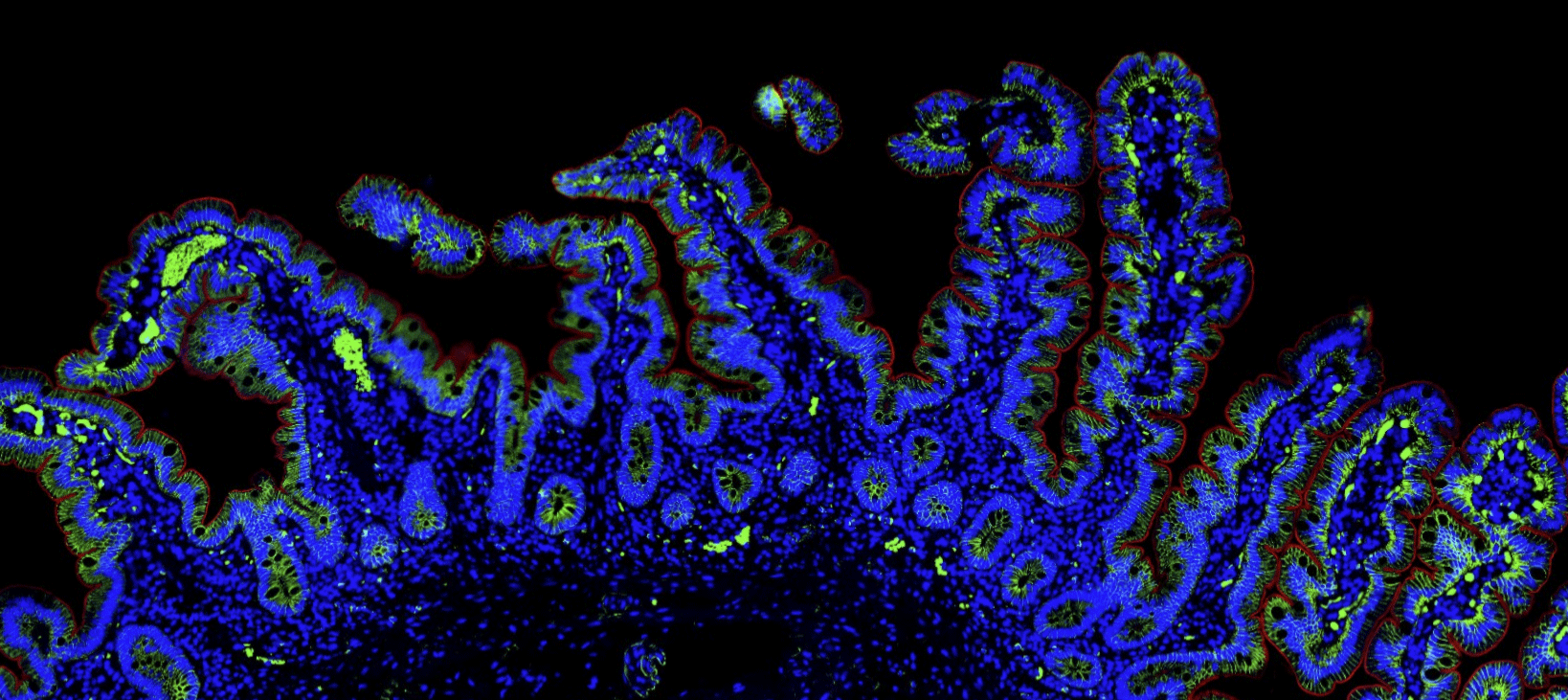


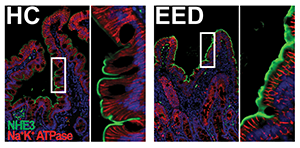
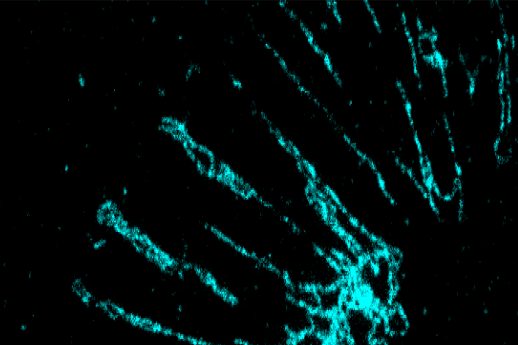
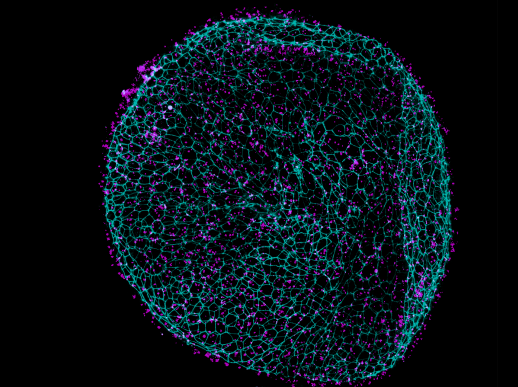
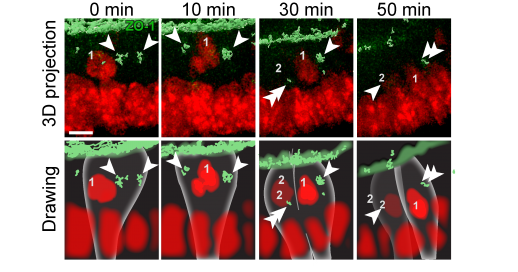

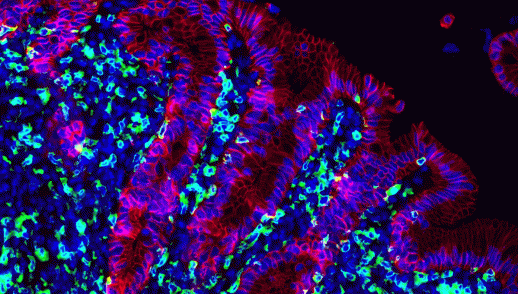
CD3+ (green) T lymhocytes infiltrate the mucosa and E-cadherin (red) labeled epithelium when channels are active.
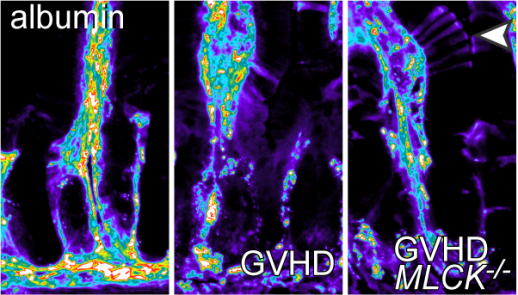
Albumin (pseudocolor) is normally retained within blood vessels (left). In GVHD (center and right), albumin leaks from vessels, but in mice lacking epithelial MLCK (right) albumin accumulates between epithelial cells (arrow).
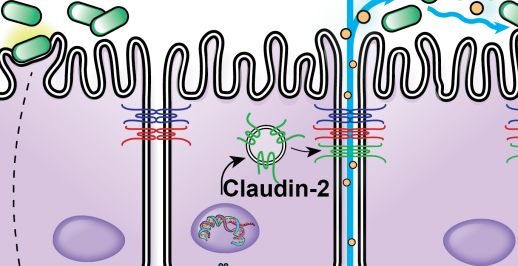
Size- and charge-selective tight junction permeability increases promote resolution of infection.
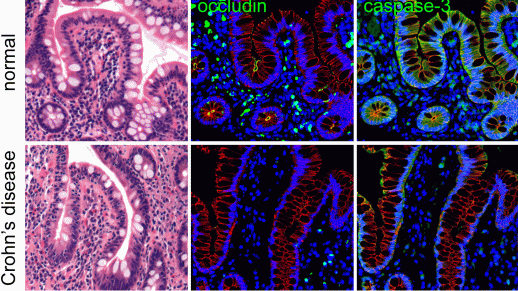
Occludin and caspase-3 expression are coordinately reduced in Crohn's disease patient biopsies.
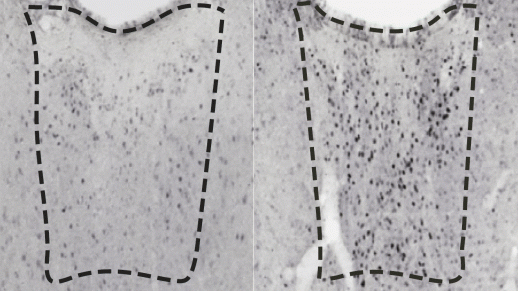
Neuronal activation in the thalamus of control mice (left) and mice with intestinal barrier loss (right).
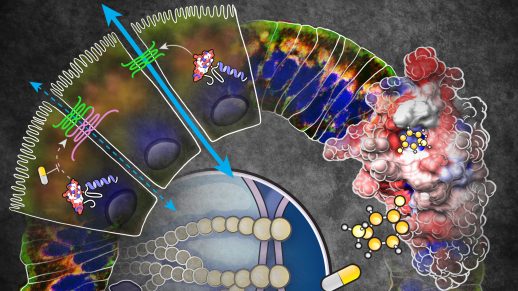
A structure-based screen identifies a novel approach that may lead to new IBD therapies.
The viability of complex organisms relies on barriers at sites where tissues meet the external world. These barriers are formed by cells and the intercellular tight junctions, which seal the spaces between cells. Transport of water, salts, and nutrients across these barriers requires tight junction seals to be selectively-permeable. The balance between permeability and barrier function is precisely regulated. Dysregulation of this balance has been linked to both systemic and organ-specific disease, particularly in the intestines, where tissues interface with the gut microbiome.
We focus on understanding the structure, function, and regulation of intercellular tight junctions using a multidisciplinary approach. This integrative approach is key to reaching our goal of fundamentally advancing tight junction biology as a means to augment fundamental understanding and improve health.
Please contact Dr. Turner directly for more information and opportunities to join our team.
Welcome to Laura's beautiful daughter Zoë. Mother and child are doing well. Family and lab are very happy.
Postdoctoral positions available in epithelial cell biology, mucosal immunology, intestinal pathobiology, and metabolism.
Congratulations to Carina as she leaves to pursue her PhD at Yale. Great things to come....
Congratulations Laura on your Poster of Distinction Award at the 2025 APS Summit
Congratulations Shabnam on your paper PNAS!
Congratulations Sandy on your paper in JBC!
Congratulations Li on your paper in Gut!
Seminar! "Conversations Between Mucosal Immunity and the Gut Barrier"
Seminar! "Approaches to and Impact of Barrier Restoration"